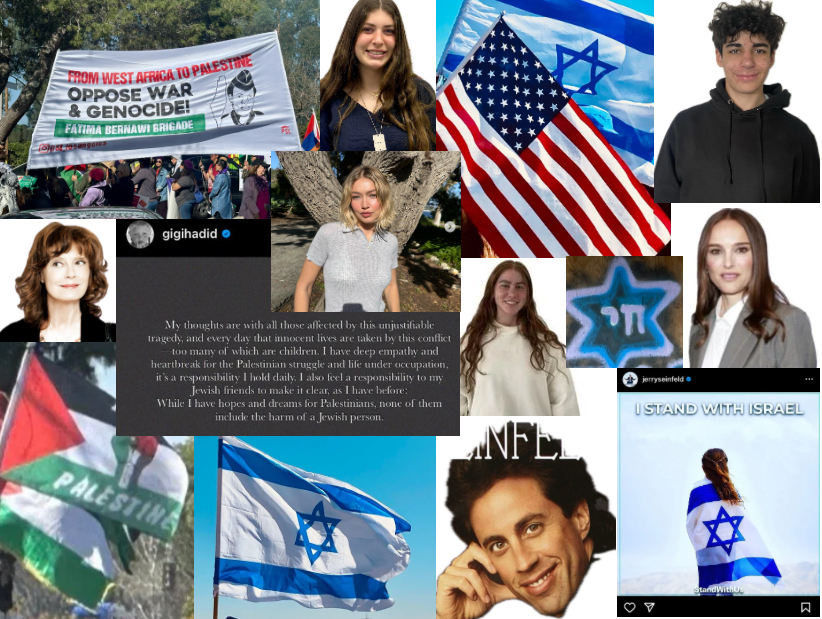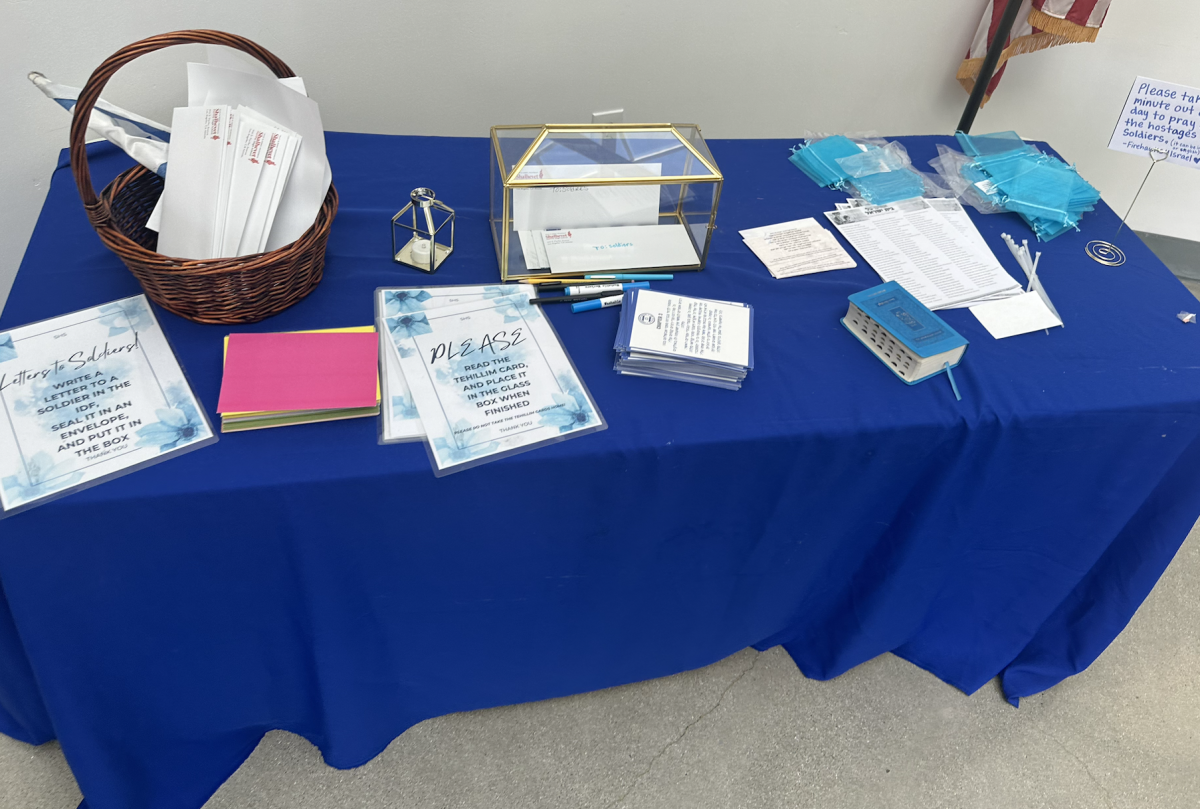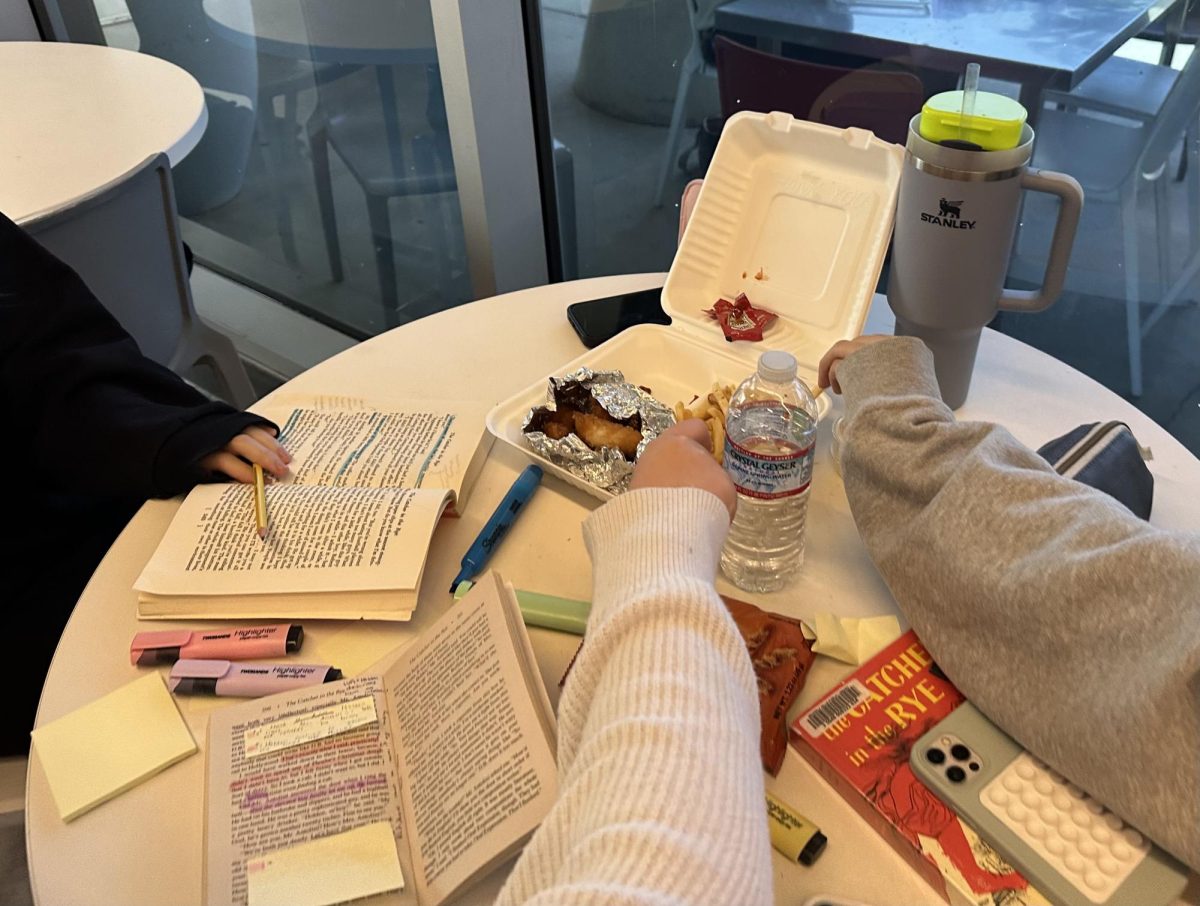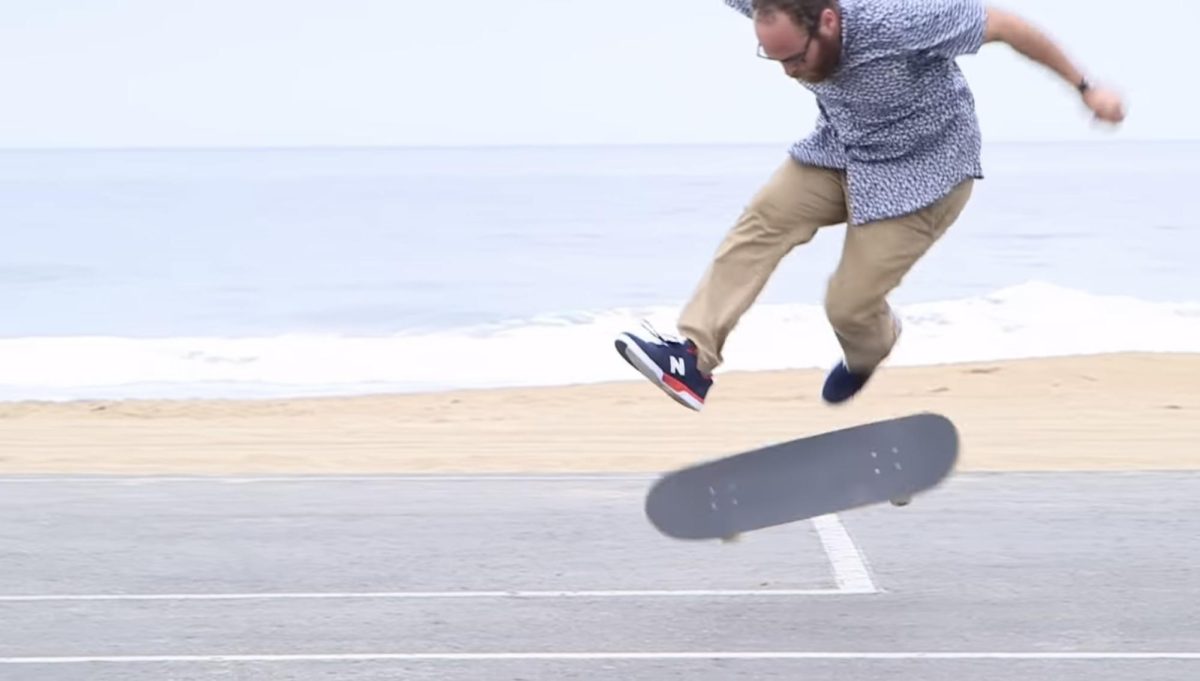On Oct. 8, the Jewish actress Natalie Portman posted about the previous day’s terror attack in Israel on her Instagram.
“My heart is shattered for the people of Israel,” wrote Portman, whose most famous role is as Padmé Amidala in the Star Wars prequel trilogy. “Children, women, and elderly have been murdered and abducted from their own homes. I am in horror at these barbaric acts and my heart is pounding with love and prayer for the families of all affected.”
Two days later, the supermodel Gigi Hadid posted an Instagram sympathizing with victims on both sides:
“I have deep empathy and heartbreak for the Palestinian struggle and life under occupation, it’s a responsibility I hold daily,” wrote Hadid, whose father is Palestinian, in her message.
“I also feel a responsibility to my Jewish friends to make it clear, as I have before,” she continued. “While I have hopes and dreams for Palestinians, none of them include the harm of a Jewish person. The terrorizing of innocent people is not in alignment with and does not do any good for the ‘Free Palestine’ movement.”
And in the early weeks of November, next to a picture of protestors at the #March4Palestine rally, actress Susan Sarandon wrote the following.
“You don’t have to be Palestinian to care about what’s happening in Gaza…I stand with Palestine. No one is free until everyone is free.”
Hadid’s and Sarandon’s posts were liked by millions of users on Instagram, and many commented as well.
Comments like these – and others much more controversial – have impacted young adults around the globe, as they struggle with separating the art from the artist, the clothing from the manufacturer, and the show from the actor.
Earlier this year, the Boiling Point posted a poll on Schoology regarding celebrities and their role in the media war between Israel and Hamas. Over the course of a few weeks in January, 73 students responded.
Twenty percent said they followed news on celebrity opinions on the conflict, and 56 percent said they did not seek it out but came across it often anyway. The remaining 23 percent said they did not follow or see celebrity opinions on the conflict. The poll was open to anyone on Schoology, which would include teachers and staff as well as students.
Forty-five percent said that they made up a little more than half of their feeds in the weeks following Oct. 7, and 13% said that these videos made up their entire feed.
Additionally, 47 of the 73 responders, 65%, reported that viewing pro-Hamas posts made by celebrities about the war encouraged them to stop buying their merchandise, listening to their music or watching their shows or movies.
On the other hand, only 38% of students polled — 28 of the 73 — reported that they would go out of their way to support any celebrities who displayed clear support for Israel.
Freshman Emily Gold and others noticed a decline in pro-Israel and pro-Hamas videos showing up in her feed months after an October peak.
“I didn’t see any pro-Israel or pro-Palestine posts before Oct. 7,” Emily said. “It wasn’t a lot of my TikTok For You Page after Oct. 7, but I’d see a few a day. Now I see little to none.”
In a followup survey taken in April, 62% of 45 students and faculty reported that pro-Palestine video had never appeared on their feeds on Instagram or TikTok before Oct. 7, and 60 percent reported that as of April 4, when the survey was taken, pro-Palestine videos made up little to none of their feeds.
Around the same time as Gigi Hadid’s and Susan Sarandon’s social media support for Hamas, comedian Jerry Seinfeld expressed love and support of Israel through an Instagram post liked by hundreds of thousands.
Captioning a graphic saying, “I stand with Israel,” Seinfeld wrote:
“I lived and worked on a Kibbutz in Israel when I was 16 and I have loved our Jewish homeland ever since. My heart is breaking from these attacks and atrocities. But we are also a very strong people in our hearts and minds. We believe in justice, freedom and equality. We survive and flourish no matter what. I will always stand with Israel and the Jewish people.”
Some celebrities who posted in support of Israel removed their posts after receiving backlash and hate from fans. In an Instagram post that was taken down after much controversy, actor Noah Schnapp, best known for his role as Will Byers in Stranger Things, took his opinions a step further and condemned those who justified the murder of an innocent Israeli girl.
“I just reposted a beautiful picture of a young innocent girl whose life was taken by Hamas at a music festival,” Schnapp posted in part.
“I was met with comments reading ‘no one cares free Palestine’ and ‘She deserves that, and every Israeli terrorist deserves that – Free Palestine.’ I am outraged by the justification and celebration of the death of a young girl’s life. Have people lost their minds??? STOP!”
But most posts made by celebrities following the events of Oct. 7 support “Palestine” during the conflict. Specific attacks on Israel more commonly appear in TikTok comment sections, with creators using hashtags such as #freepalestine and #gazaunderattack.
Others have commented on videos that display support of Israel by saying Free Palestine.
Next to a picture of protestors at the Washington D.C #March4Palestine rally in early November, Susan Sarandon wrote the following, “You don’t have to be Palestinian to care about what’s happening in Gaza…I stand with Palestine. No one is free until everyone is free.”
For many Shalhevet students, social media has been a significant aspect of the war between Hamas and Israel, and while celebrities’ opinions on the conflict apparently don’t seem to affect their views of the conflict, they sometimes affect how they view that celebrity.
Emily Gold said it depends on how invested she was in the celebrity or their work.
“I wouldn’t go out of my way to go watch or listen to someone who supports Israel,” Emily said. “But it really depends on how well I know the actor. I’d unfollow pro-Palestinian people personally but still watch their shows. It really just depends on how well I know them and how much I like them.”
Freshman Olivia Kboudi said stars’ Israel-Hamas opinions aren’t worth changing her everyday life, though she selects the “not interested” option on TikTok when she comes across videos made by pro-Hamas creators.
“I feel like you can’t stop what you’re doing on a daily basis,” Olivia said. “Just because someone else’s opinion is different doesn’t mean that you have to go out of your way to change.”
Sophomore Lev Fishman said that he tries to avoid celebrity news about the war.
“I purposely try not to look at stuff that’s pro-Palestine, because I don’t want to see it,” said Lev. “It usually leads me to see bad stuff that’s disgusting or antisemitic or whatever, and I don’t need to see it.”
Senior Yalee Schwartz said she didn’t have social media apps until recently, and that it benefited her after the events of Oct. 7.
“I just didn’t have it before,” Yalee said. “But I think with all the stuff going on, especially on Oct. 7 with all the videos coming out of what Hamas did to us, I think it’s better off that I didn’t have social media… It was enough to hear about it.”
Even so, she thinks what’s posted is important.
“Definitely for people that are uneducated,” Yalee said, “and simply follow celebrities and just see them posting about pro-Palestine or vice-versa, it does make an impact on how they think. Because that’s the only information that they’re receiving.”
The topic of managing celebrity influence came up indirectly at the Jan. 16 Town Hall, when a discussion of Jeffrey Epstein evolved into a discussion of the artist versus their art.
Epstein, a financier, was arrested in 2019 for sex trafficking and abusing minors on his private island. When new court documents were unsealed, it turned out his associates and people who worked with him had been recorded. Though none of them were accused of immoral actions themselves, it did show they were associated with Epstein.
At Town Hall that day, Agenda Chair Rami Melmed explained how the topic was related to social media and Israel. He said there had been “a lot of buzz” that week about the Epstein list, and so he looked for a useful way for students to think about it.
“A lot of the people who were related to the court proceedings are prominent public figures, and a lot of the people on that list have done a lot of good in the world,” Rami said in an interview. “And the question was meant to get to the core issue of, how do we manage conflicting feelings about a person, and should those feelings be separated from the words that they put out and the things that they do.”
For example, students were reminded of the recording artist Ye (formerly Kanye West), who tweeted about going “DeathCon3 on Jewish people” when he woke up the next morning, stirring up a wave of public antisemitism, especially in the NBA. Ye has since retracted the comment.
“Most kids were in favor of separating the art from the artist,” Rami said, adding that he agreed with them.
But the view was not unanimous. Junior Zev Shapiro worried about artists receiving a certain amount of money for each listen that a song gets.
“We don’t know what they’re spending it on,” Zev said. “You can’t control what they do with their money.”
Senior Nettie Wolkind said that artists do not receive major amounts of money from one listen to their song, while also saying that even if they did, that is not the moral of the story.
“I think when we’re talking about separating the art from the artist and people are bringing in the minuscule amount of money that you’re bringing the person, obviously it’s not talking about that,” Nettie said.
Something that everyone seemed to agree on, though, was that the posts do not contribute to resolving the conflict between Israel and Hamas in Gaza.
Emily Gold said that most celebrities who are commenting on the conflict need education, not entertainment.
“I feel like if they’re not educated enough on the whole Israel-Palestine conflict, then they shouldn’t post,” Emily said. “A lot of them are just saying, oh, I need to go along with this so I don’t get canceled, but they don’t actually know what’s going on.”







